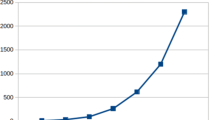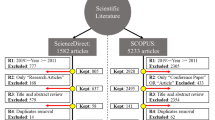Abstract
This paper deals with knowledge capitalization in maintenance especially in diagnosis and repair of industrial equipments. The goal is to propose a method of knowledge capitalization in order to develop a decision support system for maintenance operators. The knowledge capitalization cycle was adopted as the underlying principle. It consists of four principal steps: detect, preserve, capitalize and actualize the strategic knowledge. Different knowledge management tools and methods that can be used in the cycle are reviewed. We propose a mix method of knowledge capitalization in maintenance. This method integrates a representation and a reasoning model both completing each other and suitable to represent and manipulate the domain knowledge. The knowledge representation model using unified modelling language (UML) diagram proposes different domain models based on maintenance analysis to guide the domain expertise. The reasoning model uses the case-based reasoning which allows the manipulation of represented domain knowledge. Finally, the method is implemented on the pallet transfer system Sormel in the context of Proteus e-maintenance platform.
Similar content being viewed by others
References
Aamodt, A. (2001). Modeling the knowledge contents of CBR systems. In Proceedings of the Workshop Program at the Fourth International Conference on Case-Based Reasoning, Vancouver.
Althoff, K. D. (2001). Case-based reasoning. In S. K. Chang (Ed.), Handbook on software engineering and knowledge management (pp. 549–588).
Bachimont, B., Isaac, A., & Troncy, R. (2002). Semantic commitment for designing ontologies: A proposal. In Proceedings of the 13th International Conference on Knowledge Engineering and Knowledge Management, EKAW’2002 (Vol. 2473, pp. 114–121). Spain: Springer Verlag, LNAI.
Barthès, J. P. (1996). ISMICK and knowledge management. In Knowledge management: Organization, competence and methodology, Proceedings of ISMICK’96 (pp. 9–13). Netherlands: Rotterdam.
Bergmann R., Schaaf M. (2003). Structural case-based reasoning and ontology-based knowledge management: A perfect match?. Journal of Universal Computer Science 9(7):608–626
Bézivin, J. (2000). From the object programming to the ontology modeling (in french). Ingénierie de connaissances 209–222.
Bourne, C. (1997). Categorization and formalization of industrial knowledge (in french). In Fouet (Coord.) Connaissances et Savoir-faire en entreprise (pp. 179–197). Hermès.
Charlet, J., Bachimont, B., Bouaud, J., & Zweigenbaum, P. (1996). Ontology and reutilisability: experiment and discussion (in french). Acquisition et ingénierie des connaissances: tendances actuelles. Toulouse: Cépaduès.
Charlet J., Zacklad M., Kassel G., Bourigault D. (2000). Knowledge engineering: Recent evolutions and new challenges (in french). Paris, France: Editions Eyrolles
Corbel, J. C. (1997). Experience feedback methodology: Approach MEREX from Renault (in french). Connaissances et savoir-faire en entreprise (pp. 93–110). Hermès.
Duribreux-Cocquebert, M., & Houriez, B. (2000). Industrial application of a mixed approach of knowledge modeling (in french). Ingénierie de connaissances, pp. 25–42.
Ermine J.L. (1996). Knowledge systems (in french). Hermès, Paris
Fouet, J. M. (1997). Knowledge and know-how in enterprise, integration and capitalization (in french). Hermès.
Grundstein, M. (1992). Knowledge engineering within the company: An approach to constructing and capitalizing the knowledge assets of the company. In IAKE’92 Proceedings, Third Annual Symposium of the International Association of Knowledge Engineers, Washington DC.
Grundstein, M. (1994). To develop a system containing knowledge: An effort of co-operation to build jointly an unknown object (in french). Paris: CP2I.
Holsapple, C. W., & Joshi, K. D. (1999). Description and analysis of existing knowledge management frameworks. In Proceedings of 32nd Hawaii International Conference on System Sciences, IEEE.
Jarboe, K. P. (2001). Knowledge Management As an Economic Development Strategy. Reviews of Economic Development Literature and Practice n° 7.
Lai, H., & Chu, T. (2000). Knowledge management: A review of theoretical frameworks and industrial cases. In Proceedings of the 33rd Hawaii International Conference on System Sciences, IEEE.
Malvache, P., & Prieur, P. (1993). Mastering corporate experience with the Rex method. In Proceedings of ISMICK’93, Compiègne.
Matta, N., Ermine, J. L., Aubertin, G., & Trivin, J. Y. (2001). Knowledge capitalization with a knowledge engineering approach: The MASK method. In Proceeding of IJCAI’2001 Workshop on Knowledge Management and Organizational Memory.
Mille, A. (1999). Tutorial CBR: State of the art of case-based reasoning (in french). Palaiseau: Plateforme AFIA’99.
Mille A., Fuchs B., Chiron B. (1999). Reasoning based on the experiment: A new paradigm in industrial supervision (in french). Revue d’intelligence artificielle 13:97–128
MOKA (2000). Final synthesis, Deliverable 4.3. The MOKA consortium.
Motta E., Rajan T., Eisenstadt M. (1990). Knowledge acquisition as a process of model refinement. Knowledge Acquisition 2:21–49
OMG (2003). Unified modeling language specification. Version 1.5.
Rasovska, I., Chebel-Morello, B., & Zerhouni, N. (2004). A conceptual model of maintenance process in unified modelling language. In Proceedings of the 11th IFAC Symposium on Information Control Problems in Manufacturing, Salvador-Bahia, Brasil.
Reynaud Ch., Tort F. (1997). Using explicit ontologies to create problem solving methods. International Journal of Human-Computer Studies—Special issue on Explicit Ontologies in KBS Development 46:339–364
Rosario, J. G. (1996). Much ado about knowledge capital. Business World, Philippines.
Rumbaugh J., Jacobson L., Booch G. (1999). The unified modeling language reference manual. Reading, Addison Wesley
Schreiber, A., Terpstra, A., Magn, P., & Van Veelzen, M. (1994). Analysing and implementing VT using commonKads. In Proceedings of the 8th Banf Knowledge Acquisition for Knowledge-Based Systems Workshop.
Simon, G. (1996). Knowledge acquisition and modeling for corporate memory: lessons learnt from experience. In Proceedings of KAW’96, Banff, Canada, pp. 41.1–18. Also in http://www.ksi.cpsc.ucalgary.ca/KAW/KAW96/KAW96ProcS.html.
Van Craeynest, J. M., Ermine, J. L., & Chagnot, Ch. (2000). Knowledge capitalization applied on the industrial transfer (in french).Ingénierie de connaissances, pp. 465–480.
Van Heijst, G., Van der Spek, R., & Kruizinga, E. (1996). Organizing corporate memories. In Proceedings of KAW’96, Banff, Canada, pp. 42.1–17. Also in http://ksi.cpsc.ucalgary.ca/KAW/KAW96/KAW96ProcS.html.
Vogel C. (1988). Cognitive sciences (in french). Collection “ Sciences cognitives”. Masson, Paris
Wielinga B., Van De Velde W., Schreiber G., Akkermans H. (1993). Towards a unification of knowledge modelling approaches. In: David J.M., Krivine J.P., Simmons R. (eds). Second Generation Experts Systems. New York, USA: Springer Verlag, pp. 299–335
Author information
Authors and Affiliations
Corresponding author
Rights and permissions
About this article
Cite this article
Rasovska, I., Chebel-Morello, B. & Zerhouni, N. A mix method of knowledge capitalization in maintenance. J Intell Manuf 19, 347–359 (2008). https://doi.org/10.1007/s10845-008-0087-3
Received:
Accepted:
Published:
Issue Date:
DOI: https://doi.org/10.1007/s10845-008-0087-3




